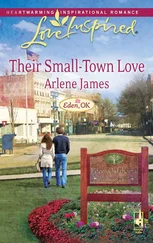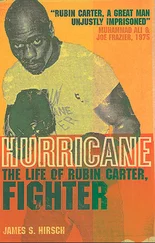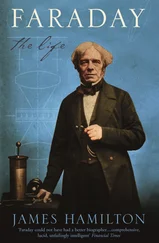Robert throws one picture after another into the fire. It is hard. He is not throwing away what might have been but what was. Viola helps him. She holds him when he cries, with her hand she brushes the sides of his face, his hair. She insists, though, on feeding them into the fire. When Robert has trouble placing the next photograph into the flame, she guides his hand, gentle, unyielding.
By the end he has done it, he has fed every moment of their past into the fire. He falls back onto the cavern’s uneven floor, her next to him. He is not even sure now of their names.
Robert watchesthe riots on television from his parents’ house in Geist, Indiana. Pictures of downtown Indianapolis look like a different place: windows smashed in, cars overturned, flames licking out from the faces of storefronts and businesses. Most of the city has been shut down, for three days. Now, though, on the news, they are announcing that the last of the rioters are being hunted down and arrested. Fire crews and police work around the clock to retain stability. Somehow, in the suburbs, things are quiet. Robert’s mind is a complete and absolute blank. He imagines, that were he to peel his skin back, he would find nothing underneath.
He visitshis grandmother in the nursing home, and she starts screaming as soon as she sees him. A pit, a pit, he thinks.
Viola calls Robertto tell him that she is safe, that she is staying with some friends in the suburbs. “I’m glad to hear that,” Robert says.
“Robert, where are you?” she asks.
“I’m safe,” Robert says.
“I would think you would want to be together at a time like this,” Robert’s mother says.
“We’re… separated,” Robert says, searching for the word.
Viola calls Robert and when he won’t say anything, she listens to his breath over the line. Robert goes to sleep each night in his childhood bed, feeling four times too large for his room.
Then one night,sometime after the last of the riots, there’s a tapping at his window. It’s Viola, standing on one of the lawn chairs from the backyard. She makes a motion for him to pull the window up. Robert stares at her. She slumps, her forehead against the glass, looking more tired than Robert can ever remember her looking. He pulls up the window.
“You have lines around your eyes,” Robert says. “I don’t really remember seeing them before.”
“Thanks,” she says.
“No, I like them,” he says.
“Are you going to come home?”
“Why didn’t you answer your phone?”
“Oh God, Robert,” Viola says. “If I had had any idea where you were — It must have been horrible—”
“I don’t care what you were doing. I could live with that. But just — why didn’t you answer?”
Viola thinks. She wants to answer this correctly. Not as in give the right answer, the one that Robert wants to hear, but to answer him as honestly as she is able. She says, “It wasn’t that I didn’t want to. It was — I didn’t answer your first call, and I should have. Only it didn’t seem like such a big deal, not to answer. And then it didn’t seem to matter if I put it off, calling you back, at least for a little while. When I got the next call from you, I thought, I shouldn’t answer this, I should call him back first. That is, I thought it would be better if I called you. But I was embarrassed about calling you, because you had just called me twice. Only slightly, but enough to cause me to put off calling you again. Then… I don’t know. It added up. It became harder and harder to call. Putting it off made so little difference — that is, each decision to put it off seemed to make comparatively little difference in the overall situation. And the idea of finally calling you began to feel momentous. I couldn’t even listen to your messages. I was afraid of what you would say.
“I finally listened to them a couple of nights ago. All of them, in a single sitting. Oh God, Robert. I’m so sorry. Robert, I’m so sorry.” She attempts to hug Robert. Robert thinks, do I let her? Do I hug her back?
“Okay,” he says, but does not hug her back. Viola pulls away from him.
“I don’t want you to think I’m a terrible person,” she says.
“I don’t think you are a terrible person,” Robert says.
Robert looks past her, at the window. After a moment he realizes, with no particular affect, that he is looking at his own reflection.
On Friday, Viola calls to tell Robert that her aunt has died.
Robert and Violadrive through the husk of downtown Indianapolis. It looks, if anything, worse than it did on the news. They feel as though they are driving through an alien landscape. What could possibly live here, they think.
Their yard is littered with trash, their front door kicked in. Robert and Viola explore the house, half expecting to find someone sleeping in one of the rooms. There’s damage, some missing items, but the house seems livable.
Robert sets to work repairing the door. Viola finds a broom, a dustpan. They work in silence, as if afraid that any unnecessary sound might break the truce, however brief, that has been called forth between them.
They sleep in different rooms, pass each other in the hallway like memories.
“When my motherdied,” Viola tells Robert, “I didn’t really even notice. Really, I didn’t. For such a long time she hadn’t been my mother, she’d been this woman who appeared every couple of months to tell me that she was getting better and that soon we’d be together again. By the time I was six, I was terrified of her. I was terrified that I would have to go live with her someday. But she never got better.”
They are in Viola’s old room in North Carolina and Viola is putting on her black dress. Robert sits on the end of her bed wearing his socks and his underwear and a white shirt and black tie. His suit pants and jacket are draped across his legs. “We were supposed to be there for each other,” Robert says. “I could forgive you anything, except that.”
Viola breathes in and out, carefully, and does not respond.
In the next room some distant cousins are trying to help Viola’s uncle get dressed. Viola’s uncle keeps calling out his wife’s name, over and over, while the distant cousins grunt with the effort of trying to get his arms in his jacket.
“Her heart just gave out,” Viola’s uncle says, on the way to the funeral. “She was just a little thing, always had a fast heart. I used to say she was my hummingbird. She thought it was funny, me calling her that. The way she was always flitting from one place to another.”
“How are you, Robert?” one of the distant cousins asks.
“Okay,” Robert says. “I may be asked to resign from my firm. Not bad.”
The funeral is in the chapel of the Hillsborough Street Baptist Church. “I didn’t know Melissa that well,” the minister admits. “But I have several trustworthy accounts of her character. She was loving and generous, more tidy than not, a woman of excellent mores and standards even if not a regular church-going woman per se… ”
When it comes to be Viola’s uncle’s turn to speak, he says, “Missy and I never had any children. But I never knew a better mother than her in my life. Missy, damn you, what’s Viola supposed to do for a mother now? You’re just leaving her? You’re just leaving me?”
Robert stays quietduring a dinner with several of Viola’s old friends. After dinner, as they’re walking back to their rental car, Viola says, “You didn’t have to come.” When Robert doesn’t answer, she says, “Look, I can find my own way back.”
Читать дальше
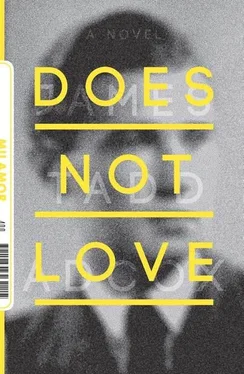


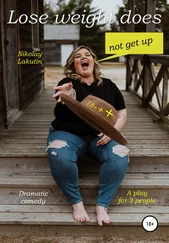
![Jakob Wassermann - Issue Does Not Exist],errors:{](/books/585068/jakob-wassermann-issue-does-not-exist-errors-thumb.webp)

